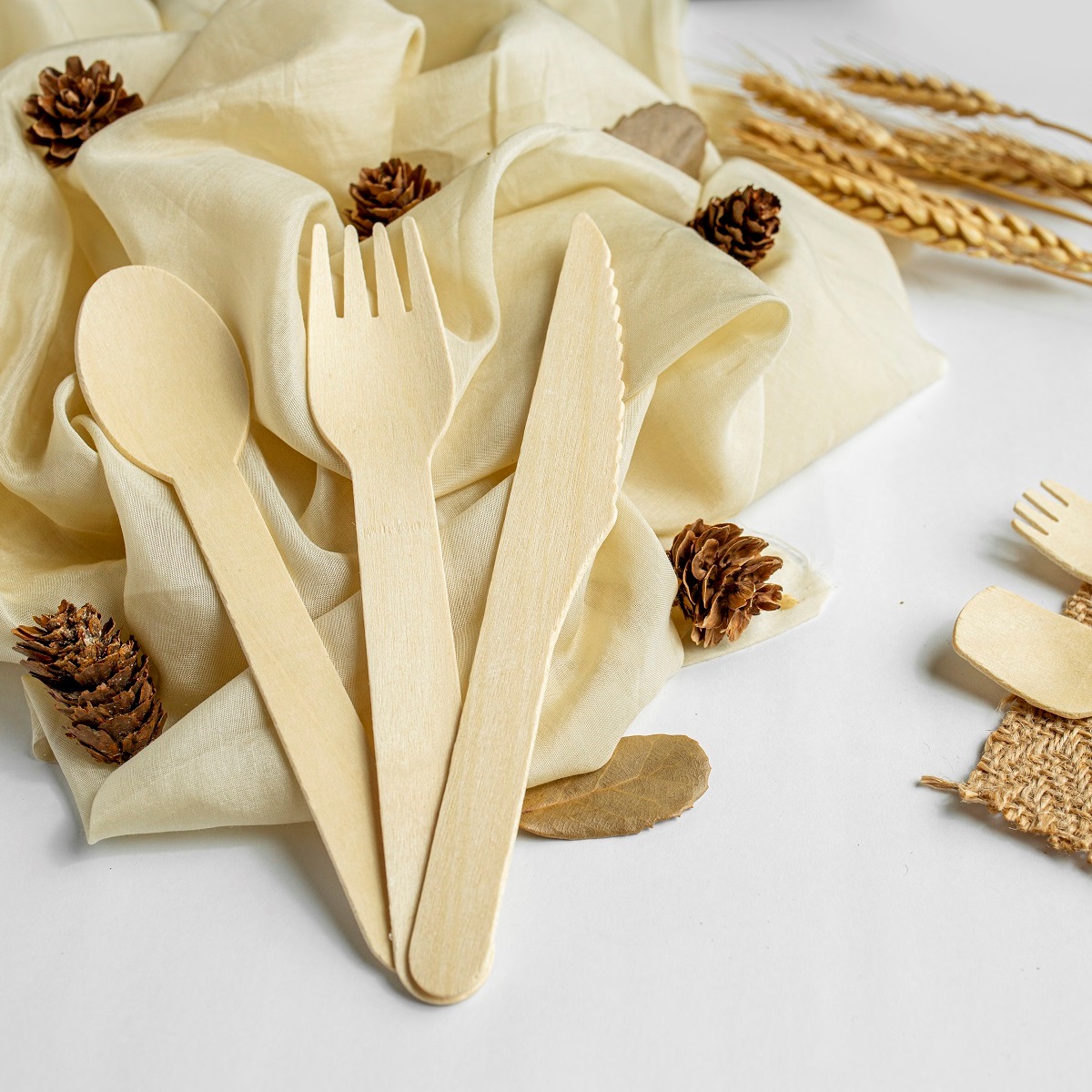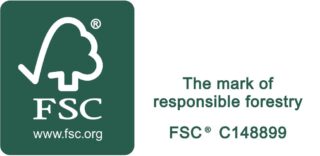
Disposable wooden cutlery has become increasingly popular in recent years, as people become more aware of the environmental impact of plastic. Wooden cutlery is made from a renewable resource and can be composted, making it a more sustainable alternative to plastic cutlery, which takes hundreds or even thousands of years to decompose.
However, wooden cutlery is not without its drawbacks. It is generally less durable than plastic cutlery. Additionally, if disposable wooden cutlery is not sourced from sustainable forests, it can contribute to deforestation.
Pros of wooden cutlery:
- Biodegradable and compostable: Disposable wooden cutlery can be broken down naturally by microorganisms, unlike plastic cutlery, which can take hundreds or even thousands of years to decompose.
- Non-toxic: Wooden cutlery is generally considered non-toxic and safe for use with food, as it does not contain harmful chemicals.
- Aesthetically pleasing: Many people find disposable wooden cutlery more aesthetically pleasing than plastic cutlery, due to its warm and inviting appearance.
- Sustainable: If disposable wooden cutlery is sourced from sustainable forests, it can be a more sustainable alternative to plastic cutlery.
Cons of wooden cutlery:
- Less durable: Disposable wooden cutlery is generally less durable than plastic cutlery and may be more likely to break or splinter, especially when used with hot or hard foods.
- Deforestation: If disposable wooden cutlery is not sourced from sustainable forests, it can contribute to deforestation.
- Cost: Disposable wooden cutlery can be more expensive than plastic cutlery.
- Availability: Disposable wooden cutlery may not be as widely available as plastic cutlery, especially in some developing countries.
Overall, disposable wooden cutlery is a more sustainable alternative to plastic cutlery, but it is important to weigh the pros and cons before deciding whether or not to use it. If you do choose to use disposable wooden cutlery, be sure to source it from sustainable forests and dispose of it properly.
Here are some tips for using disposable wooden cutlery more sustainably:
- Choose wooden cutlery that is made from recycled wood or wood from sustainable forests.
- Avoid wooden cutlery that has been treated with chemicals.
- Compost wooden cutlery at home or a commercial composting facility.
Industry response to the growing demand for wooden cutlery
In recent years, there has been a growing demand for wooden cutlery from consumers and businesses. This has led to an increase in the number of companies producing and selling wooden cutlery.
Many of these companies are committed to sustainable practices. For example, some companies use recycled wood or wood from sustainable forests. Others use environmentally friendly manufacturing processes.
The growing popularity of wooden cutlery is a positive development, as it shows that people are becoming more aware of the environmental impact of their choices. However, it is important to choose wooden cutlery that is sourced from sustainable forests and to dispose of it properly to minimize its environmental impact.



